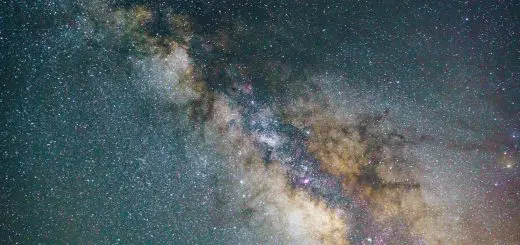Is the Universe Alive? A Philosophical Inquiry

Looking for more amazing products? Check out our online store and explore our collection here! Happy shopping!
Before diving in, please note: This post is for informational purposes only. If you’d like to know more about how we approach topics, feel free to check out our friendly Disclaimer Page.
Hey there, amazing readers! 
We’re committed to delivering quality posts, and your support (even just sticking around despite the ads) means everything to us. So, bear with us, and thanks for helping us keep the good vibes rolling. Now, on to the fun stuff!
TRANSLATE BUTTON AT THE END OF THE ARTICLE
A Quick Overview
Is the universe alive?
This question stirs a potent blend of curiosity, wonder, and philosophical inquiry.
It invites us to step outside the narrow confines of everyday existence and ponder the very fabric of reality.
When we think of life, we often picture organisms: trees swaying in the breeze, birds soaring across the sky, or the delicate flutter of butterflies.
But what if life extends beyond these familiar boundaries?
What if the universe itself pulses with life?
This article seeks to explore and unpack the philosophical avenues that lead us to consider the universe as a living entity, examining historical contexts, scientific discoveries, and the intricate dance of consciousness itself.
Exploring the Concept of a Living Universe: An Overview
The idea of a living universe isn’t a new one.
Many cultures and philosophies throughout history have entertained the notion that the cosmos is more than a mere collection of stars, planets, and voids.
Some ancient philosophies viewed the universe as an interconnected web, where everything is alive and infused with spirit.
Vitalism: This school of thought argues that life is driven by an intrinsic "life force" — a spark that distinguishes living beings from non-living matter.
Panpsychism: This viewpoint suggests that consciousness, or at least some form of it, is a fundamental trait of all matter, suggesting a kind of life in everything, even rocks and rivers.
What does this mean for us?
If we consider the universe alive, we start to see ourselves as part of this grand tapestry, rather than isolated beings.
Suddenly, our actions and thoughts have weight; they resonate with the universe itself.
Historical Perspectives on the Universe as a Living Entity
History offers a treasure trove of insights into how various cultures perceived the universe.
Ancient Egyptians revered the cosmos, viewing it as a living body of gods.
The sun, moon, and stars were not just celestial bodies; they were divine beings interacting with humanity.
Similarly, in Native American cultures, the Earth is often seen as a mother figure, nurturing and alive.
The interdependence between humans and nature is emphasized.
These perspectives highlight a deep-seated respect for the cosmos, suggesting that our existence is harmoniously intertwined with a living universe.
Even in Western philosophy, thinkers like Plato and Aristotle grappled with the idea of a "World Soul." They posited that the universe was animated by a soul, shaping and connecting all matter.
This philosophical lineage has persisted, culminating in modern discussions about the cosmos’s potential sentience.
The Role of Consciousness in a Living Universe Debate
Consciousness becomes a crucial player in the discussion of whether the universe is alive.
If everything possesses a form of consciousness, then the universe could be viewed as an intricate web of interconnected thoughts and experiences.
Collective Consciousness: Some theorists argue that human consciousness contributes to a larger, universal mind.
Every thought, emotion, and action adds to this cosmic tapestry.
Quantum Physics: Fascinating research in quantum mechanics hints at a reality where consciousness influences outcomes.
The famous double-slit experiment showcases how observation can affect particle behavior.
Explore the Path to Spirituality and Enlightenment – Start Here.

Does this mean our awareness impacts the universe?
Imagine if our thoughts didn’t just float aimlessly but rather sent ripples through the cosmos, shaping reality.
This shift in perspective could redefine our relationship with the universe.
Scientific Discoveries That Spark the Living Universe Idea
Recent scientific discoveries have ignited discussions about a living universe.
Consider the following:
Biomimicry: Scientists are inspired by nature’s designs to solve complex human problems.
This suggests a kind of intelligence inherent in natural systems.
Astrobiology: The search for extraterrestrial life has broadened our understanding of what constitutes life.
If life can exist in extreme conditions, then maybe the universe has a variety of forms we can’t yet comprehend.
In addition, the idea that the universe is expanding and evolving could parallel biological growth.
Think about it: galaxies, stars, and planets form, evolve, and eventually die, not unlike living organisms.
Philosophers Weigh In: Are We Part of a Living Cosmos?
Philosophers have long pondered our place within the universe.
Many propose that we’re not merely observers but participants in a grand cosmic play.
For instance, Alfred North Whitehead’s process philosophy suggests that the universe is a dynamic flow of experiences rather than a collection of static objects.
From this viewpoint, every aspect of existence interacts and evolves, almost like a living organism.
Similarly, David Bohm’s implicate order proposes an interconnected universe where everything is enfolded within one another.
Our actions impact the whole — creating a web of relationships between all living things.
These philosophical insights can be empowering.
The idea that we’re woven into the fabric of the cosmos can inspire a newfound sense of responsibility for our actions.
The Interconnectedness of All Things: A Cosmic Perspective
The interconnectedness of all things is a theme that runs deep across various philosophies and scientific studies.
From ecosystems to quantum entanglement, everything is linked in a complex dance.
Ecological Systems: In nature, every organism plays a role in sustaining life.
Remove one element, and the whole system can falter.
This interconnectedness suggests a living quality to the universe.
Quantum Entanglement: At the subatomic level, particles can become entangled, influencing each other across vast distances.
This phenomenon challenges our traditional views of separation, hinting at a deeper connection.
By acknowledging this interconnectedness, we can foster empathy and compassion.
We’re not separate; we’re part of an intricate web that defines our existence.
Nature’s Rhythms: Do They Indicate a Living Universe?
Nature’s rhythms and cycles are profound indicators of a living universe.
Observe the changing seasons, the phases of the moon, or the tide’s ebb and flow.
These phenomena reflect an underlying order that feels alive.
Biological Cycles: Everything from the life cycle of a butterfly to the seasons of the Earth demonstrates a rhythm that mirrors life.
Cosmic Rhythms: The universe itself has rhythms, seen through the regularity of celestial phenomena like the orbits of planets and the life cycles of stars.
These patterns create a sense of stability and continuity.
They remind us that we’re part of something larger, guiding our journey through life.
The Universe’s Evolution: Signs of Life or Pure Chaos?
The universe’s evolution raises intriguing questions.
Is it a chaotic flurry of events, or does it reflect an underlying order?
Consider how galaxies form, stars explode, and new planets arise from cosmic dust.
Some scientists argue that this complexity suggests a higher purpose or intelligence.
Others contend that it’s simply the product of random events, leading to a seemingly chaotic existence.
In my view, both perspectives hold value.
Embracing the chaos can be liberating, while recognizing the order can provide comfort.
Perhaps the universe embodies both elements, challenging us to find balance in the apparent contradictions.
Does the Universe Have a Purpose or a Conscious Will?
One of the most profound questions we can ask is whether the universe possesses purpose or consciousness.
Are we stumbling through an accidental existence, or is there a guiding force?
Many spiritual traditions posit that the universe has a consciousness — a mindful energy that shapes our reality.
This perspective invites us to consider our role in this grand design.
On the other hand, scientists often argue that the universe operates according to physical laws.
However, even scientists like physicist Brian Greene acknowledge the beauty and mystery of existence, hinting at a deeper purpose beyond mere randomness.
This conundrum invites us to explore our beliefs and experiences.
Are we living in a universe that has our best interests at heart, or are we the architects of our own destinies?
Mystical Traditions: The Universe as a Sentient Being
Throughout history, mystical traditions have perceived the universe as a sentient being.
Indigenous cultures often view nature as a living spirit; every mountain, river, and tree holds wisdom.
In Eastern philosophies, particularly in Buddhism and Hinduism, the universe is frequently seen as a manifestation of consciousness.
The interconnectedness of all life emphasizes unity and the sacredness of existence.
These perspectives can enrich our understanding of life.
They invite us to engage with the universe as a partner rather than a backdrop to our lives.
It’s a shift that encourages reverence, gratitude, and a sense of belonging.
Implications of an Alive Universe for Human Existence
If we consider the universe as alive, profound implications arise for our existence.
First, it fosters a sense of responsibility.
Our actions matter; they ripple through the cosmic fabric.
Just think about how our choices impact not only ourselves but the environment and future generations.
Second, it nurtures a deeper connection to nature.
By recognizing ourselves as part of a living universe, we cultivate empathy and care for the world around us.
This mindset can motivate us to protect our planet and its inhabitants.
Lastly, this perspective can inspire spirituality.
Viewing the universe as a living, breathing entity can instill a sense of wonder and awe, inviting us to explore the depths of existence.
Conclusion: Embracing the Mystery of an Alive Universe
As we wrap up our philosophical inquiry into the living universe, one thing becomes clear: the question itself invites us to dance with mystery.
Whether or not the universe possesses life or consciousness remains an open discussion, rich with implications for how we view our existence.
The universe is a wondrous tapestry woven with threads of interconnectedness, rhythm, and potential.
It offers us an opportunity to reflect on our place within it and to nurture a bond with everything around us.
So, the next time you gaze at the stars, remember: you may just be looking into the heart of a living universe.
Embrace that mystery.
It adds a little sparkle to life, doesn’t it?

The Enlightenment Journey is a remarkable collection of writings authored by a distinguished group of experts in the fields of spirituality, new age, and esoteric knowledge.
This anthology features a diverse assembly of well-experienced authors who bring their profound insights and credible perspectives to the forefront.
Each contributor possesses a wealth of knowledge and wisdom, making them authorities in their respective domains.
Together, they offer readers a transformative journey into the realms of spiritual growth, self-discovery, and esoteric enlightenment.
The Enlightenment Journey is a testament to the collective expertise of these luminaries, providing readers with a rich tapestry of ideas and information to illuminate their spiritual path.
Our Diverse Expertise
While our primary focus is on spirituality and esotericism, we are equally passionate about exploring a wide range of other topics and niches 

To ensure we provide the most accurate and valuable insights, we collaborate with trusted experts in their respective domains 
Our blog originally focused on spirituality and metaphysics, but we’ve since expanded to cover a wide range of niches. Don’t worry—we continue to publish a lot of articles on spirituality! Frequently visit our blog to explore our diverse content and stay tuned for more insightful reads.
Hey there, amazing reader! 
Check out our store here and take a peek at some of our featured products below! Thanks for being awesome!













